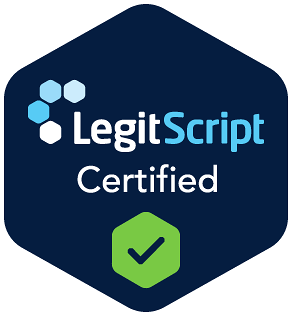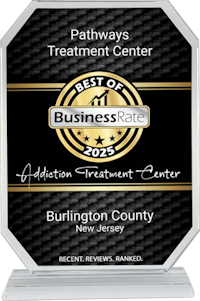Searching for the best rehab in NJ can feel overwhelming, and you’re not alone. With so many treatment centers, programs, and approaches available, it’s hard to know where to begin. The term “best” is subjective, but certain critical factors—clinical quality, professional staff, personalized care, and compassionate support—can help guide your choice. Whether you’re exploring rehab options for the first time or seeking higher-level care due to relapse or new challenges, understanding what makes a treatment center stand out is vital.
In the sections below, we’ll break down what distinguishes quality addiction treatment centers in New Jersey and walk you through how to evaluate your options with confidence.
Prioritize Evidence-Based Therapies and Clinical Expertise
The best rehab centers use therapies that are backed by science and proven to work. Look for facilities that offer Cognitive Behavioral Therapy (CBT), Dialectical Behavior Therapy (DBT), trauma-informed therapy, and individualized treatment plans. These evidence-based methods help clients develop coping skills, change harmful behaviors, and understand the root causes of addiction.
CBT focuses on identifying and changing negative thought patterns, while DBT incorporates mindfulness and emotional regulation strategies, especially helpful for those with intense emotions or co-occurring disorders. Trauma-informed care ensures that your past experiences are treated with compassion, not judgment.
Why Evidence-Based Care Matters
Rehab isn’t just about abstaining from substances—it’s about learning new coping skills, processing trauma, and addressing underlying issues that contribute to addiction. Programs based on proven therapies like:
- Cognitive Behavioral Therapy (CBT)
- Dialectical Behavior Therapy (DBT)
- Motivational Interviewing
- Trauma-informed care
- Family therapy
- Relapse prevention education
…equip clients with tools for lasting change. These methodologies target thought patterns, emotional regulation, stress responses, and behavior, crucial for long-term recovery.
The Value of Licensed, Experienced Staff
Just as important is the team behind the therapy. Ensure that the clinical staff is licensed, experienced, and trained in addiction and mental health treatment. A qualified, compassionate team can make a significant difference in your recovery journey.
Look for centers with professionals, including:
- Licensed Clinical Social Workers (LCSWs)
- Licensed Professional Counselors (LPCs)
- Certified Addiction Counselors
- Psychiatric and medical staff
Ensure credentials are clearly listed on the website or admissions materials—this speaks to accountability and expertise.
Make Sure Dual Diagnosis Treatment Is Available
What Is Dual Diagnosis?
Addiction often doesn’t occur in a vacuum. Many people also struggle with mental health conditions like depression, anxiety, PTSD, or bipolar disorder. This is known as a co-occurring disorder or dual diagnosis.
Why Treating Both Matters
- Higher risk of relapse if only addiction is treated
- Improved mental health outcomes when both conditions are addressed
- Reduced self-medication and fewer cyclical triggers
If a facility doesn’t address mental health alongside addiction, critical pieces of the puzzle may go unaddressed. Ask if the center offers integrated psychiatric care, medication management, and therapies tailored to both addiction and mental health needs.
For example, someone using substances to self-medicate untreated anxiety needs more than just detox—they need anxiety support, too.
The best rehab in NJ always screens for co-occurring conditions, provides integrated clinical care, and offers both medication and therapy tailored to mental health and substance use.
Look for a Full Continuum of Care
Recovery isn’t one-size-fits-all. Depending on your needs, you may benefit from different levels of support, from intensive treatment to flexible outpatient options. A high-quality rehab center offers a full continuum of care, including:
| Level of Care | Description | Who It’s For |
| Partial Hospitalization Program (PHP) | Structured day programming | Those needing clinical oversight but not 24/7 residential care |
| Intensive Outpatient Program (IOP) | Evening or daytime sessions | Clients balancing recovery with obligations |
| Medication-Assisted Treatment (MAT) | Buprenorphine, methadone, or naltrexone | Individuals with moderate-to-severe addiction |
| Outpatient / Aftercare | Ongoing therapy and support | Those in early sobriety or post-residential care |
Having access to all these options ensures that your treatment plan can evolve as your needs change. The best centers will personalize your path and help you transition smoothly from one level to the next.
Here’s an example: A client may start in PHP, move into IOP as they stabilize, then continue with outpatient counseling while reintegrating into daily life. This “step-down” approach supports long-term success.
Compassionate Care Matters Just as Much as Credentials
Credentials are important, but so is the culture of the center. A treatment program that feels cold or clinical may not support emotional healing. Instead, look for environments that are trauma-informed, nonjudgmental, and genuinely supportive.
Do the staff listen to your concerns? Do they involve you in treatment planning? Do they treat you with dignity and respect? A compassionate team can help you feel safe enough to open up and begin the real work of recovery.
At the best rehab centers in NJ, staff go beyond providing care—they build relationships, listen actively, and meet you where you are. Look for programs that prioritize dignity, empathy, and connection.
Aftercare and Relapse Prevention Should Be Part of the Plan
A quality rehab understands that leaving the program doesn’t equal recovery. What happens after you complete treatment is just as important as what happens during. Relapse prevention planning should begin early in the process and be customized to your unique challenges, triggers, and goals.
Essential aftercare components include:
- Ongoing therapy or check-ins
- Alumni groups, peer support, and sober events
- Written relapse prevention strategies
- Referrals to community resources and vocational support
- Transitional housing options or sober living placement
Discuss these details during admissions to ensure you’re choosing a program with staying power. At Pathways, clients receive relapse prevention education, learn how to handle cravings, identify high-risk situations, and build a peer support network before discharge.
Family Involvement and Education: A Key Piece of Recovery
Recovery isn’t just about the individual—it often involves the entire family. The best rehab centers include family counseling, education sessions, and structured support that helps rebuild relationships and set healthy boundaries.
Whether through virtual family groups or in-person sessions, involving loved ones creates a more supportive home environment and helps everyone heal together.
Programs that involve family members can improve communication, reduce relapse risk, and foster long-term support. Look for options like multi-family group therapy, psychoeducation, and guided family sessions as part of the treatment plan.
The Right Setting Can Support Recovery
Location and atmosphere matter. Some people prefer treatment centers close to home, where family can visit and routines remain intact. Others benefit from stepping away from daily stressors to focus fully on healing.
Think about what feels most supportive to you. Does the facility offer nature access, quiet surroundings, or a strong sense of community? Being in a place where you feel safe and supported can significantly impact your experience.
Accreditation, Reviews, and Transparency Build Trust
You deserve to know exactly what you’re getting. A trustworthy rehab center will be licensed by the state and possibly accredited by organizations like The Joint Commission (JCAHO) or CARF.
Transparency is key. Look for:
- Clear information on services, pricing, and staff credentials
- Verified online reviews and testimonials
- The ability to speak with former clients or schedule a tour
Don’t be afraid to ask hard questions. A good center will be happy to provide answers.
How Pathways Treatment Center Aligns with These Standards
At Pathways, we understand that choosing a rehab program is one of the most important decisions you’ll ever make. Here’s how we meet the mark as one of the best rehab options in NJ:
● Offers a full continuum of care: Detox → PHP → IOP → MAT → Aftercare
● Provides evidence-based approaches: CBT, DBT, trauma-informed therapy, family engagement
● Expert care team: licensed therapists, medical providers, and addiction specialists
● Compassionate, recovery-focused environment—balanced structure and freedom
● Robust aftercare, alumni, and peer support programs
Whether you’re stepping into recovery for the first time or returning after relapse, our team is here to help you move forward, without judgment and with full support.
Frequently Asked Questions
Quality rehabs combine evidence-based care, licensed staff, dual diagnosis capabilities, a continuum of care, a compassionate culture, aftercare, accreditation, transparency, and peer support.
Ask yourself: Are there mood, anxiety, or trauma symptoms accompanying your substance use? If yes, integrated care is essential. Ask facilities about diagnostic evaluations and co-treatment protocols.
- PHP features structured day-long programming with medical oversight (think group/individual therapy, educational workshops).
- IOP is part-time: typically 3–5 days/week via evening or partial-day sessions, suitable for transitioning back to everyday life.
Yes. Accreditation confirms the facility meets strict standards for clinical quality, safety, ethics, and accountability. It also improves insurance grid inclusion.
Final Thoughts: The Best Rehab in NJ Is the One That Fits You
Recovery is deeply personal. There’s no universal “best rehab”—but there is the best fit for you. Here’s how to find it:
1. Define your goals: Full residential? PHP? Dual diagnosis care? MAT?
2. Ask questions: About credentials, therapies, aftercare, and accreditation
3. Evaluate environment: Too close/home-based or too far away?
4. Look for signs of compassion: Not just clinical soundness
5. Plan aftercare from day one
Armed with clear expectations and key questions, you’ll recognize high-quality care when you see it. And when you’re ready, Pathways is here to listen—without judgment and with full support.
If you or someone you love is ready to begin the healing journey, we’re here to walk beside you. Contact Pathways Treatment Center today to learn more or schedule a confidential consultation.



